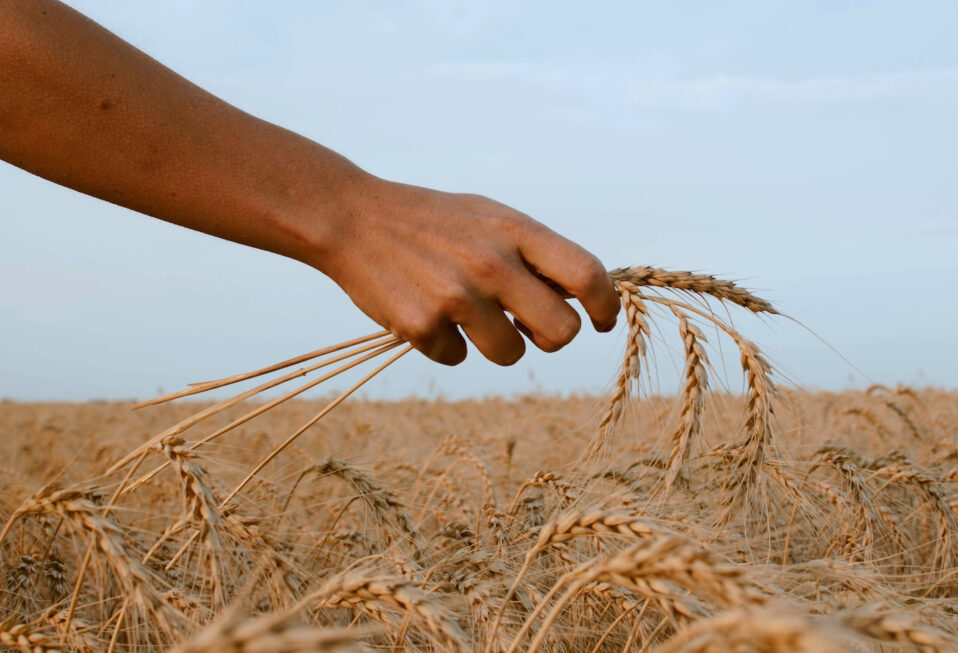“You are to count seven weeks, counting the weeks from the time the sickle is first put to the standing grain. You are to celebrate the Festival of Weeks to the LORD your God with a freewill offering that you give in proportion to how the LORD your God has blessed you. Rejoice before Yahweh your God in the place where He chooses to have His name dwell—you, your son and daughter, your male and female slave, the Levite within your gates, as well as the foreigner, the fatherless, and the widow among you. Remember that you were slaves in Egypt; carefully follow these statutes” (Deuteronomy 16:9-12 HCSB).
Moses outlined for the Israelites the ordinances of the Festival of Weeks (Shavuot or Pentecost). This festival commemorated the harvest seven weeks and one day (50 days, hence “Pentecost”) after the first Sabbath following the Festival of Unleavened Bread.
The festival was to be a celebration marked by a freewill offering—an offering “that you give in proportion to how the LORD your God has blessed you.”
The festivals and rituals that God gave to the Israelites served as reminders of His participation in their daily lives. Agriculture did not depend upon the farmer and his ingenuity or the luck of the weather; rather, God Himself blessed and provided for the daily needs of the people. The rituals and festivals functioned as reminders of God’s nearness and called upon the Israelites to give thanks, to rejoice.
The Israelites celebrated Pentecost not only within their families but also with their communities. Three groups of people are specifically identified as participating in the celebration of the festival: strangers, orphans, and widows. These three groups lacked a legal advocate within ancient Israel, which is why God often describes Himself, the just Judge, as the defender of these three groups.
In the midst of the celebration, God calls on the Israelites to remember those on the fringes of their society and to bring them into the festivities. The basis for this action is provided in Deuteronomy 24:18 HCSB: “Remember that you were a slave in Egypt.”
You were once an outcast, someone at the bottom of the social world, so remember and bring those at the bottom of your world into your celebration of the Lord’s blessing.
Do we see God’s care in every facet of our lives? Do we celebrate it and remind ourselves to rejoice at His provision? Do we share our blessings with those on the fringes of our own society? This was God’s expectation of the ancient Israelites when they celebrated Shavuot. He expects the same from us.
PRAYER
Father, thank You for Your daily provision in my life. As a sign of my thanksgiving, may I share Your blessings in my life with others. Amen.




Comment(1)-





Christina Namchek says
June 9, 2022 at 8:34 pmJesus saves by his stripes we are healed he has sprinkled us with his blood we are bought by a price Jesus and the holy temple 2370A.D Onethousandyrreign Amen Daniel 2,7,8 Acts 1:11, Revelation 11:1, Isaiah 6-10 Isaiah 2, Malachi 4
Many more
Matt 4:29
Sharia laws are foreign Islamic laws that by design overthtows nations and that by definition is TREASON High TREASON against USA free society Jesus saves Repent
Receive Devotionals and News Updates from Israel
Recent Posts
Magdala: Faith by the Lake
Weekly Devotional: Set Free to Serve the King
Does the Cyrus Cylinder Hold Hope for the Jewish Community in Iran?
Hostage Families Find Healing in the Desert